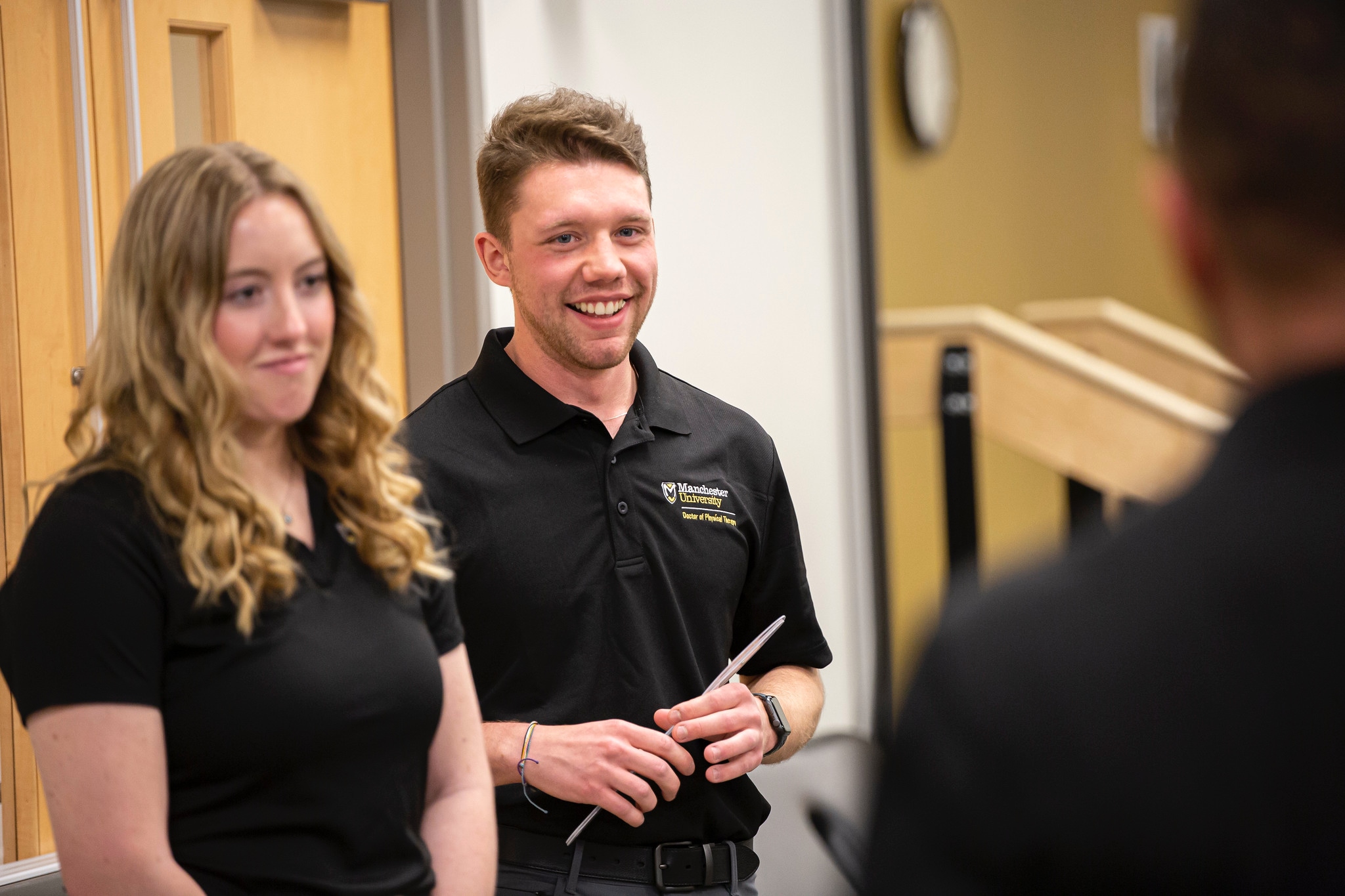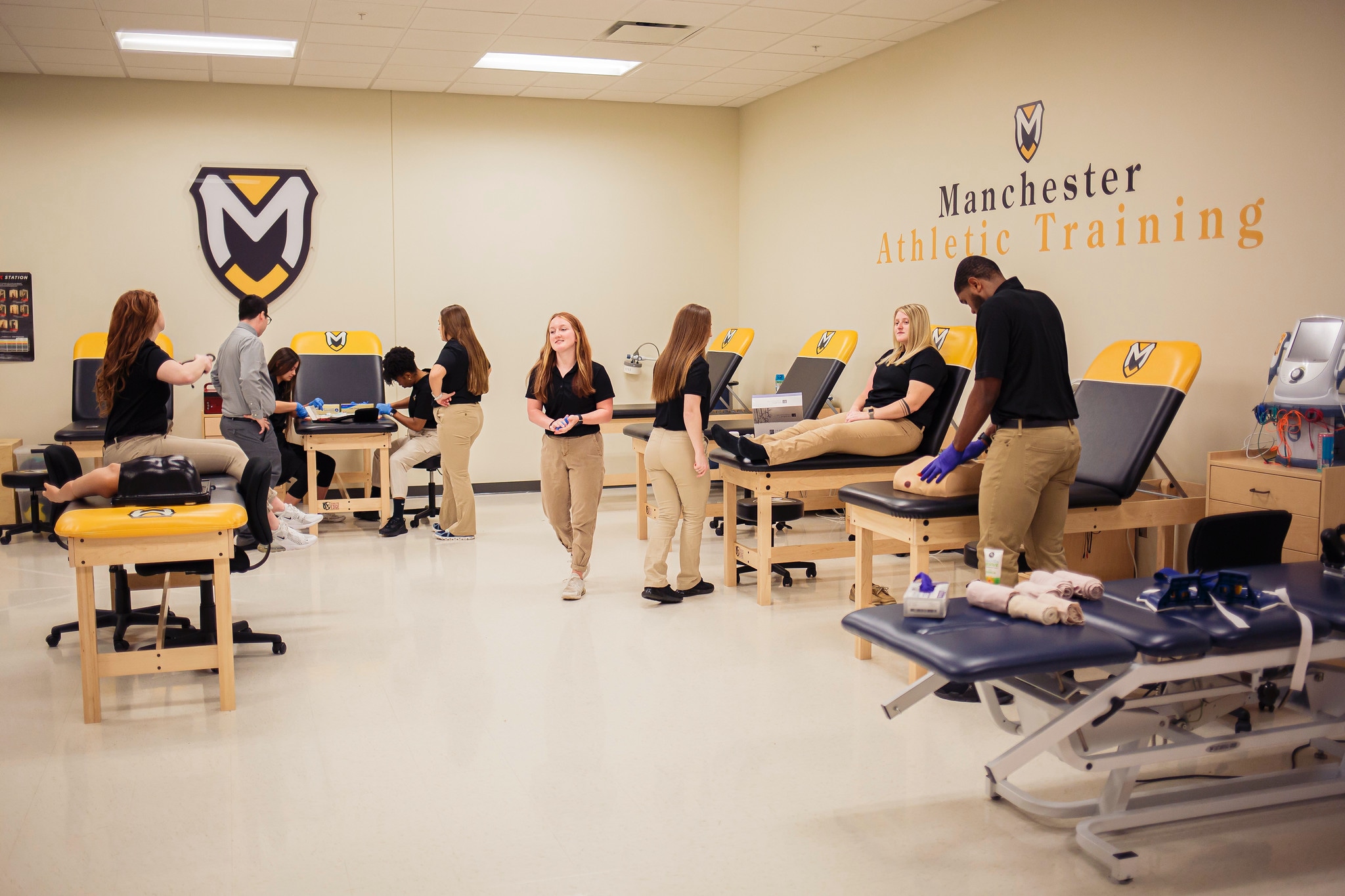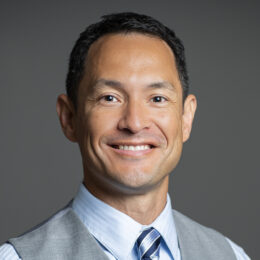Human Performance
Manchester University’s Bachelor of Science in Human Performance degree is designed for the study of the practical applications of fitness. It includes health, wellness and sports-related disciplines such as personal training, strength and conditioning and fitness instruction.

Exercise Science Improves and Enhances Human Performance
Personal trainers teach people how to live more active—and healthier—lifestyles. Working as an exercise science professional, you are a trusted partner guiding clients to achieve their fitness goals.
Our hands-on exercise degree provides you with a complete understanding of structural anatomy, nutritional concepts and biomechanics. Additional exposure to clinical science and rehabilitation science principles, helps you develop refined techniques to prescribe and teach exercises based on your client’s objectives and abilities.
In-depth experiential learning through practicums and internships is the cornerstone of MU’s human performance program. You’ll work alongside other students and faculty on practical application and simulation.
With state-of-the-art technology, you’ll also be prepared to take the Certified Strength and Conditioning (CSCS) exam from the National Strength and Conditioning Association before graduation.
Program Information:
Major | BS
- 54 Credit Hours
Location
- North Manchester

What I like best about the Human Performance program is the knowledge that the professors have. The experience that they give us with giving their time is far and above anything else you’d find at a bigger university.
Bryan Hemp, Human Performance, Class of 2024
Why Choose MU for Human Performance?

Experiential Learning
Exceptional faculty
Industry-Specific Training
Part of your personal training courses includes practicum and internships. Under the supervision of faculty in Manchester’s NSCA Educationally Recognized Program (ERP), you’ll design and execute health and wellness plans for real clients while building a pathway toward the Certified Strength and Conditioning Specialist (CSCS) credential.
Small Class Sizes
What You Can Do with Your Human Performance Degree
Personal trainer
Guides clients through fitness routines
Athletic director
Oversees sports programs and staff
Exercise physiologists
Develops fitness plans for health needs
Physical therapist assistant
Aids patients in physical recovery

Average Starting Salary for Human Performance Degree Holders
Salary.com reports an annual salary range of $46,828 and $79,746 for personal trainers in Indiana, with an annual average of $64,914. The U.S. Bureau of Labor Statistics (BLS) predicts a 10 percent growth rate for exercise science-related jobs through 2032, a rate much faster than average.
Earning a master’s degree expands your career opportunities – 98% of MU Human Performance graduates are accepted into their graduate school of choice.

About the Human Performance Program
Your personal training courses and other classes are aligned with earning the credentials you’ll need to pursue industry roles. Lecture and lab learning is industry-specific and taught by instructors who know what it takes to succeed. The comprehensive curriculum includes:
- Introduction to Rehabilitation Sciences
- Individual and Dual Performance Training
- Fundamentals of Human Physiology w/Lab
- Introduction to Human Nutrition
- Principles of Coaching
- Functional Kinesiology
Take the next step toward earning your degree. We have the resources to help you get started.
Additionally, we are in the process of securing accreditation by the Council on Accreditation for Strength and Conditioning Education (CASCE).
If your goal is to earn your bachelor’s degree in three years, Manchester University’s Fast Forward program may be the right fit. As a Fast Forward student, you can complete most majors through a combination of AP/dual credit and individualized academic advising. In addition to the first-year requirements, you’ll also be required to:
- Select a specific major.
- Apply by May 1 prior to the beginning of first-year classes.
Meet the Faculty
You Might Also Be Interested In These Programs

Human Performance Learning Outcomes
Program Learning Outcomes
1. Students will demonstrate knowledge and understanding of the scientific terminology, facts, principles, laws, and concepts of exercise as appropriate for an entry-level health/fitness professional.
Student Learning Outcomes:
- Students will identify and master key concepts and principles of human performance (eg: General Physical Preparedness, General Fitness Markers, Nutrition, Strength and Conditioning, and enhancing Athletic Performance).
2. Students will apply fundamental human movement principles in the areas of anatomy, physiology, and biomechanics to a variety of exercise/fitness contexts and populations in order to design safe and effective training programs for a multitude of populations.
Student Learning Outcomes:
- Students will analyze functional movement to identify pre-existing conditions in human movement and how to best navigate limiting factors and optimize performance.
- Students will evaluate and create safe and effective exercise and fitness programs for a multitude of athlete/client populations.
3. Students will demonstrate the knowledge of behavior strategies to enhance fitness and health behavior changes, specifically in the areas of general health, nutrition, mental health, and athletic performance.
Student Learning Outcomes:
- Students will understand components of health and fitness plans in order to accommodate client and drive specific physical adaptations/goals.
4. Students will evaluate scientific literature to synthesize relevant information in exercise/fitness to be subject matter experts and contributing members of the field.
Student Learning Outcomes:
- Students will conduct research, interviews, and engage in academic discourse to showcase their mastery of the content and ability to contribute to the field.
Non-Discrimination in the Admission Process
Manchester University is committed to non-discrimination in campus life. The University does not discriminate on the basis of national origin, ancestry, race, color, age, sex, gender identity or expression, sexual orientation, familial status, religion, disability or veteran status in admissions or any area of campus life, including its educational programs, scholarships and loan awards, residence life programs, athletic programs, extracurricular programs, promotion and tenure policies and practice, and alumni affairs.
Manchester University is committed to carry out the provisions of Section 504 of the Rehabilitation Act of 1973 and the Americans With Disabilities Act, which provide for accessibility of University programs to the physically disabled.







